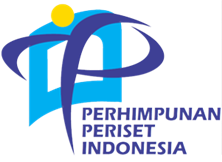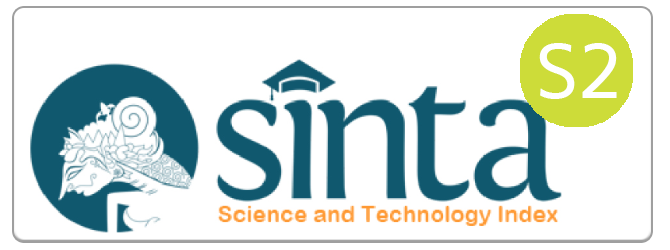Tipologi Fatwa Kentongan: Studi Naskah Ḥukm al-Nāqūs
Abstract
Keywords
Full Text:
PDFReferences
Abou El-Fadl, K. 2001. Speaking in God’s Name: Islamic Law, Authority and Women. Oxford: Oneworld.
Akmaliah, Wahyudi. 2022. “Reclaiming Moderate Islam in Nahdlatul Ulama: Challenging the Dominant Religious Authority in Digital Platform.” JOURNAL OF INDONESIAN ISLAM 16 (1): 223–48. https://doi.org/10.15642/JIIS.2022.16.1.223-248.
Alfitri, Alfitri. 2020. “Bureaucratizing Fatwā in Indonesia: The Council of Indonesian Ulama and Its Quasi-Legislative Power.” Ulumuna 24 (2): 367–97. https://doi.org/10.20414/ujis.v24i2.412.
Ali, Fachri, and Bahtiar Efendi. 2004. Merambah Jalan Baru Islam Rekonstruksi Pemikiran Islam Indonesia Masa Orde Baru. Bandung: Mizan.
Al-Jawi, Abd Al-Hafiz. 1912. “Ḥaqīqah Aḥwāl Muslimī Jāwah.” Al-Manar, November 24, 1912. https://shamela.ws/book/6947/2613.
———. t.t. “Ḥukm Al-Nāqūs.”
AN, Burhani. 2018. Islam Nusantara as a Promising Response to Religious Intolerance and Radicalism. Singapore: ISEAS–Yusof Ishak Institute.
An-Na‘im, Abdullahi Ahmed. 2008. Islam and the Secular State: Negotiating the Future of Shari’a. Cambridge: Harvard University Press.
Asy’ari, Hasyim. t.t.a. Al-Jāsūs Fī Aḥkām Al-Nāqūs. T.tp.: T.pn.
———. t.t.b. Al-Tanbīhāt Al-Wājibāt Li Man Yaṣna’u Al-Malid Bin Al-Munkarāt. Jombang: Maktabah Al-Turāth Al-Islāmī.
Azra, Azyumardi. 2007. Jaringan Ulama Timur Tengah Dan Kepulauan Nusantara Abad XVII & XVIII. Jakarta: Kencana.
Bano, Masooda, and Keiko Sakurai, eds. 2015. Shaping Global Islamic Discourses: The Role of Al-Azhar, Al-Medina, and Al-Mustafa. Edinburgh: University Press.
Bruinessen, Martin van. 2012. Kitab Kuning, Pesantren, dan Tarekat: Tradisi-Tradisi Islam in Indonesia. Yogyakarta: Gading Publishing.
Buchori, S. Ibrahim. 1971. Sejarah Masuknya Islam Dan Proses Islamisasi Di Indonesia. Jakarta: Publicita.
Burhanuddin, Jajat. 2012. Ulama Dan Kekuasaan, Pergumulan Elite Muslim Dalam Sejarah Indonesia. Jakarta: Mizan Publika.
Dawud, Abu. t.t. Sunan Abi Dawud. T.tp.: T.pn.
Faqih, Muhammad. 1336. Sharḥ Hazz Al-Ru’ūs Fī Radd al-Jāsūs ‘an Taḥrīn al-Nāqūs. Surabaya: Penerbit Dahlan Ahyad.
Fathurahman, Oman. 2010. “Filologi Dan Islam Indonesia.” Kementerian Agama RI Badan Litbang dan Diklat Puslitbang Lektur Keagamaan. https://repository.uinjkt.ac.id/dspace/handle/123456789/34972.
Fedderspiel, Howard M. 1970. Persatuan Islam: Islamic Reform in Twentieth Century Indonesia. Ithaca, NY: Cornell University Modern Indonesia Project.
Fogg, Kevin W. 2017. “Islamic Post-Traditionalism in Indonesia, Written by Rumadi.” Bijdragen Tot de Taal-, Land- En Volkenkunde / Journal of the Humanities and Social Sciences of Southeast Asia 173 (4): 601–3. https://doi.org/10.1163/22134379-17304013.
Ilyas, Ahmad Fauzi. 2007. “Syekh Ahmad Khatib Minangkabau Dan Polemik Tarekat Naqsyabandiyah Di Nusantara.” Jurnal of Contemporary Islam and Muslim Societies 1 (1). http://dx.doi.org/10.30821/jcims.v1i1.1008.
Jonathan A.C., Brown. 2014. Misquoting Muhammad: The Challenge and Choices of Interpreting the Prophet’s Legacy. London: Oneworld Publications.
Kamali, Mohammad Hashim. 2003. Principles of Islamic Jurisprudence. Cambridge: Islamic Texts Society.
Kaptein, Nico J G. 2005. The Voice of the Ulamâ: Fatwas and Religious Authority in Indonesia. Singapura: Institute of Southeast Asian Studies.
Kharish, Ibnu. 2019. “Al-Ilmām Bi Ma‘rifah al-Fatāwā Wa al-Aḥkām Karya Habib Salim Bin Jindan: Studi Tekstual Dan Kontekstual Fatwa Ulama Ḥaḍramī Di Indonesia Abad Ke-20.” Tesis, Fakultas Adab dan Humaniora, Universitas Islam Negeri Syarif Hidayatullah Jakarta. https://repository.uinjkt.ac.id/dspace/handle/123456789/46328.
L. Esposito, John. 2003. The Oxford Dictionary of Islam. Oxford: Oxford University Press.
Majalah Tjahaja Islam. n.d.
Marcus, Mietzner, and Burhanuddin Muhtadi. 2020. “The Myth of Pluralism: Nahdlatul Ulama and the Politics of Religious Tolerance in Indonesia.” Contemporary Southeast Asia 42 (1): 58–84.
Menchik, Jeremy. 2022. “The Politics of the Fatwa: Islamic Legal Authority in Modern Indonesia.” Indonesia 114:75–97.
Moussalli, Ahmad S. 1999. Reviving Islamic Modernism: Rashīd Riḍā and the Salafi Movement. Beirut: American University of Beirut Press.
Noer, Deliar. 1973. The Modernist Muslim Movement in Indonesia 1900–1942. Oxford: Oxford University Press.
———. 1996. Gerakan Modern Islam Di Indonesia 1900 – 1942. Jakarta: LP3ES.
Rahman, Fazlur. 1982. Islam and Modernity: Transformation of an Intellectual Tradition. Chicago: University of Chicago Press.
Ramdhani, Fawaidur. 2023. “Tipologi Tafsir Al-Qur’an Di Madura: Tafsir Tradisionalis, Modernis, Dan Tradisionalis-Progresif.” Suhuf 16 (2).
Ricklefs, Merle Calvin. 2007. Sejarah Indonesia Modern. Yogyakarta: Gadjah Mada University Press.
Riḍā, Rashīd. 1911. “Ittikhadh Ba’di Muslimi Jawah Al-Naqus Wa Fatawa Fi Dhalik,” July 1911.
Rizkiyansyah, Beggy. 2024. “Lahirnya Pers Islam Di Indonesia,” March 6, 2024. https://jejakislam.net/lahirnya-pers-islam-di-indonesia/.
Rosidi, Imron, Eko Saputra, Khotimah Khotimah, Avazbek Ganiyev, Masduki Masduki, and Abd Ghofur. 2024. “Negotiating Traditional Religious Authority In Indonesian Islam : the Case of Madani Village.” Jurnal Ilmiah Islam Futura 24 (1): 51–66. https://doi.org/10.22373/jiif.v24i1.17320.
Salām. 2015. Qawā’id al-Aḥkām. Vol. 2. Beirut: Dār al-Kutub al-’Ilmiah.
Salim. n.d. Al-Ta’zīr ‘Alā al-Qā’Il Bi Ṭahārah al-Khinzīr.
Surur, Aziz Miftahus, Roibin Roibin, Umi Abidah, Aris Anwaril Muttaqin, and Faridhotun Nisa. 2023. “KH. Faqih Maskumambang’s Thought Regarding the Prohibition of the Use of Kentongan as a Marker of Prayer Time: A Prophetic Hadith Perspective.” Tribakti: Jurnal Pemikiran Keislaman 34 (2): 153–66. https://doi.org/10.33367/tribakti.v34i2.3701.
Taymiyah, Ibn. t.t. Majmū’ al-Fatāwā. Vol. 10. Riyadh: Maktabah al-Ma’ārif.
Utsman. n.d. “‘Ain al-Ḥaqq Wa Faṣl al-Khiṭāb.”
Wardana, Amika, and Syahrul Hidayat. 2019. “The Multiplicity of Muhammadiyah’s Political Engagement in Indonesia’s DPD Election.” Studia Islamika 26 (1): 75–111. https://doi.org/10.15408/sdi.v26i1.6422.
Wasid, Wasid. 2019. “Indahnya Perbedaan Hukum Dalam Tradisi Memukul Kentongan: Telaah Kritis Kitab Sharh Hazz al-Raus Fī Radd al-Jasus Karya Kiai Muhammad Faqih Maskumambang.” Jurnal Islam Nusantara 3 (1): 158. https://doi.org/10.33852/jurnalin.v3i1.126.
Zarkasyi, Hamid Fahmy. 2021. Ulama dan Jaringan Intelektual Islam di Haramain. Yogyakarta: SUKA Press.
DOI: https://doi.org/10.18784/smart.v11i1.2624
Refbacks
- There are currently no refbacks.
Copyright (c) 2025 Muhamad Abror

This work is licensed under a Creative Commons Attribution 4.0 International License.








